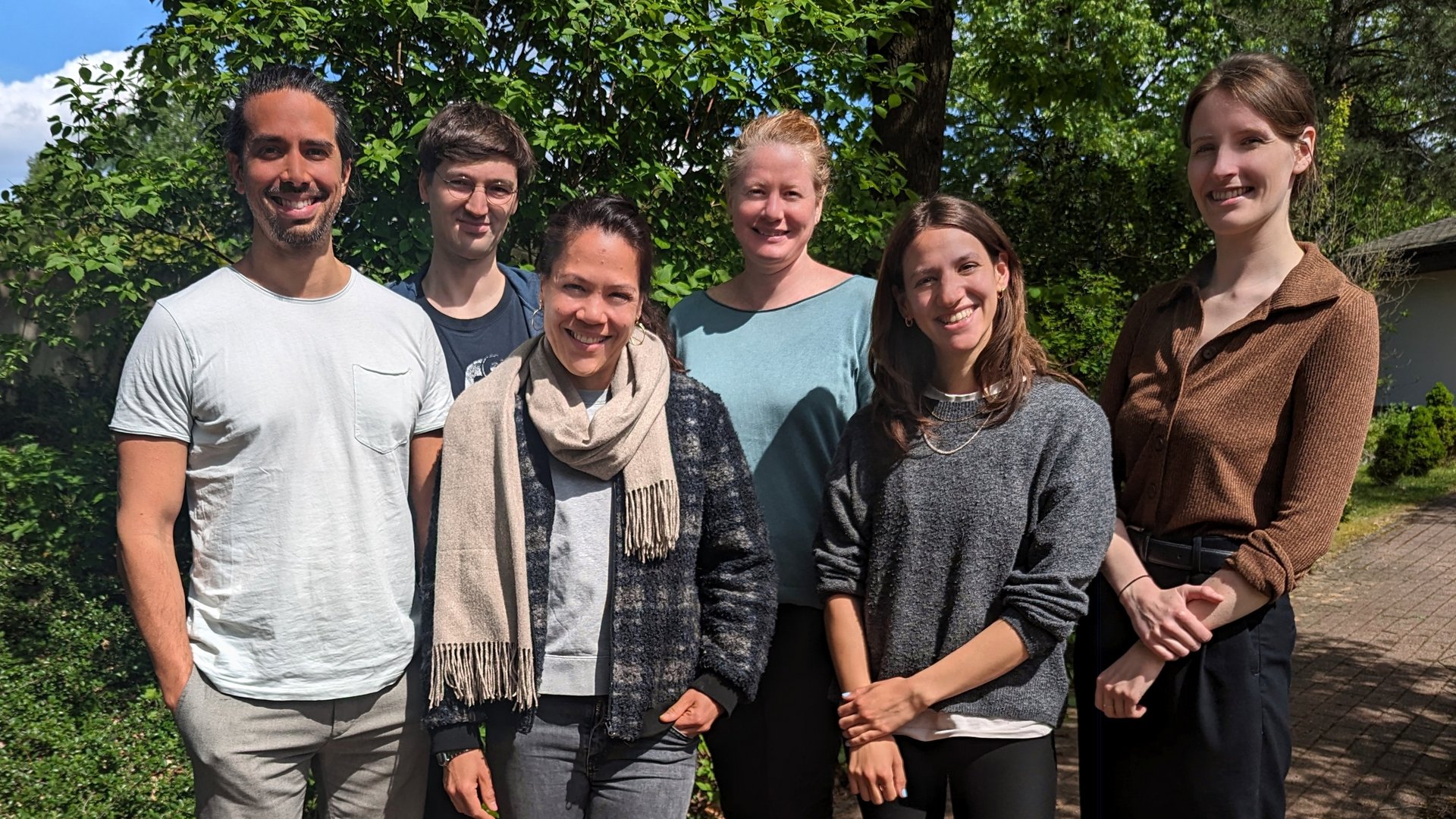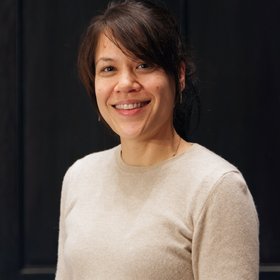Our Team
Our Expertise
Dewi Ismajani Puradiredja l BA, MSc, PhD l – also known as Jani – has a PhD in Demography and an MSc in Health, Population and Society, both from the London School of Economics and Political Sciences (LSE). Her BA in Development and Indonesian Studies is from the School of Oriental and African Studies (SOAS). From 2004 to 2011 she worked with the HIV Epidemiology and Biostatistics Group in the Research Department of Infection and Population Health at the University College London (UCL) Medical School. She taught demography at the LSE for 2 years before becoming an ESRC-funded postdoctoral research fellow at the London School of Hygiene and Tropical Medicine (LSHTM). Since 2017 she is based at the Bernhard Nocht Institute for Tropical Medicine (BNITM) where - alongside her research at the Department of Infectious Disease Epidemiology - she is the Head of the Interdisciplinary Academy of Competence & Education for Global Health (iACE Global Health). She is also the tropEd representative for her Institute and currently in the Executive Committee of the tropEd Network for Education in International Health. She remains affiliated with LSHTM as a Distance Learning Tutor based at the Faculty of Public Health and Policy.
Focus areas/expertise:
• Course design and accreditation
• Participatory didactic methods and approaches
• Qualitative and quantitative social research methods for Global Health
• Global engagement in higher education & training
• Global Health and infectious disease epidemiology
Ricardo Strauss l MD, MPH, DTMH l is a physician specialized in internal and tropical medicine and holds a degree in Public Health. As an internist he has worked in his home country (Venezuela) at the Caracas University Hospital while engaging in several humanitarian aid initiatives as well as infectious diseases outbreaks investigation and response. Since 2017 he is based at the Bernhard Nocht Institute for Tropical Medicine (BNITM) conducting clinical and epidemiological research in sub-Saharan Africa with focus on hospital-based strategies to reduce unnecessary use of antibiotics towards containing Antimicrobial resistance (AMR). Further, his commitment for conducting outbreak investigations, has seamlessly blended with his enthusiasm for teaching. His experiences in outbreak scenarios have fueled a special interest in educational activities related to outbreak investigation and response among other global health topics. He is member of the Interdisciplinary Academy of Competence & Education for Global Health (iACE Global Health) and invited lecturer at the Hamburg University of Applied Sciences.
Focus areas/expertise:
• Infectious disease epidemiology
• Diagnostics research and capacity exchange on antimicrobial resistance and stewardship
• Infectious Diseases Outbreaks and Global Health (research and education)
Kathrin Schuldt l MSc, PhD l obtained her PhD in Biology from the University of Hamburg, Germany. She has worked extensively in the field of genetic epidemiology of malaria at the Wellcome Trust Center for Human Genetics in the UK, the Robert Koch-Institute (RKI), and the Bernhard Nocht Institute for Tropical Medicine (BNITM). Additionally, she specialized in Control of Infectious Diseases (CID) and holds a Master's Degree from the London School of Hygiene and Tropical Medicine (LSHTM), UK. With over 20 years of experience, Kathrin has a strong background in epidemiology and surveillance of infectious diseases. She has actively participated in the Global Outbreak and Response Network (GOARN) and served as a laboratory expert for the World Health Organization (WHO). Kathrin is a member of the steering committee of the German Epidemic Preparedness Team (SEEG). Her current focus is on enhancing infectious disease surveillance and diagnostics for epidemic-prone diseases in collaboration with partner institutions in Africa.
Focus areas/expertise:
• Strategic planning and implementation of preparedness and response activities for global health
• Genomic surveillance of infectious diseases
• Detection and diagnostics of epidemic-prone pathogens
• Wastewater-based epidemiology of infectious diseases
Theresa Habermann (she/her) l BSc, MSc l holds a Bachelor's degree in Bioscience and Health from the Rhine-Waal University of Applied Sciences (HSRW) in Kleve and a Master's degree in 'Health Science' from HAW Hamburg. Between 2017 and 2019, she gained experience as a student assistant in teaching biology and nanobiotechnology at the HSRW and as an intern in occupational health management at BARMER. In 2019-2020, she also worked as a scientific student assistant within the clinical study GET.FEEDBACK.GP at the Clinic for Psychosomatic Medicine and Psychotherapy at the UKE Hamburg. Due to her interdisciplinary academic background and strong interest in health research in the Global South, she started a research internship in 2019 as part of the iACE Global Health team at BNITM. She continued her work in the Infectious Disease Epidemiology Department as a Master's student and finally as a project manager. Since then, she has been involved in various research and capacity-building projects in the department and took on the role of project manager for the courses offered by the iACE Global Health, where she is primarily responsible for administration and communication with course participants.
Focus areas/expertise:
• Project management and administration for courses and third-party funded research projects
• Research in Global Health and infectious disease epidemiology
• Interest in intercultural exchange and the promotion of (health) equality and diversity
Juliane Boenecke (she/her) l BSc, MSc l is a health scientist, driven by a passion for interdisciplinary and multimethod research in infectious disease epidemiology, specifically targeting epidemic preparedness and response within the One Health framework. Following her academic foundation with a BSc (Charité - Universitätsmedizin Berlin) and MSc in Health Sciences (HAW Hamburg), she has built her expertise through diverse projects since 2017 spanning public health intelligence, collaborative surveillance, and climate change and health, particularly concerning zoonotic infectious diseases. With her background as a physiotherapist, she adds a unique clinical perspective to her work. Juliane's career is further distinguished by her international collaborations across various disciplines in regions such as South America, Sub-Saharan Africa, and the Pacific Islands. At iACE Global Health, she is ambitious about developing innovative digital resources to enhance interdisciplinary collaboration and training, including the use of gamification, all while promoting an Open Science culture.
Focus areas/expertise:
• Public Health intelligence and data collaboration
• Interdisciplinary research methods
• Digital resources and gamification in higher education and training
Jonathan Ströbele l BSc, MSc l holds a MSc in Computer Science from the Hamburg University of Applied Sciences (HAW Hamburg), where he also completed his BSc in Technical Computer Science. Before his studies he worked several years in the field of web development where he designed and built complex web applications for clients from various domains. This laid the foundation for a profound passion for open source, user-centered design, and participatory development. During his Masters he worked as a research associate in different international, multi-domain projects, where he primarily focused on the development of a specialized GIS web application for processing heterogeneous data aiding epidemiological research and field work. Since 2023 he works as a computer scientist at the BNITM to continue developing the GIS framework and innovative software solutions in an interdisciplinary setting.
Focus areas/expertise:
• Open Source development
• Digitalization and automatization
• Data engineering and visualization










